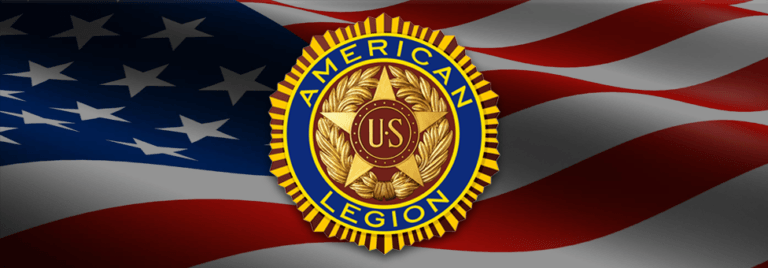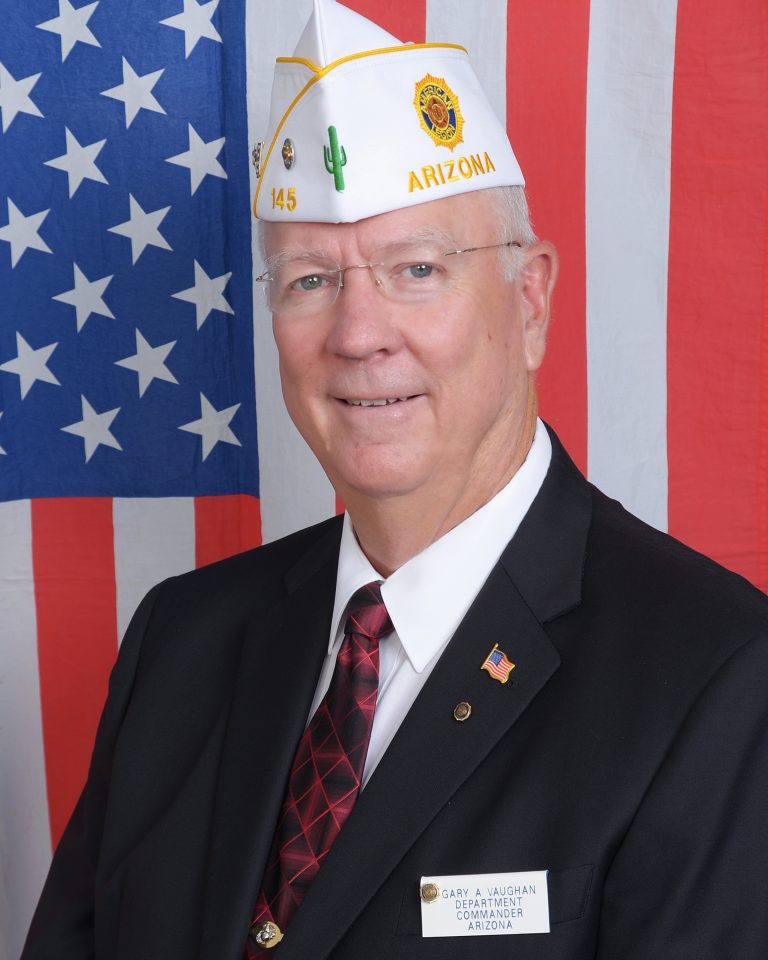Good morning Legionnaires and veterans advocates, today is Monday, April 20, 2020.
Since I am back in the office this morning briefly to move into a new office, I thought I’d include the second half of April in Legion History:
- April 18, 1941: Future U.S. Sen. Frank Church of Boise, Idaho, wins The American Legion National Oratorical Contest in Charleston, S.C. For his top-judged oration, “The American Way of Life,” he receives a $4,000 scholarship, goes on to serve in the Army during World War II, and attends Stanford University where he receives his law degree. He would go on to serve more than 30 years in the U.S. Senate, including his final two years, 1979-81, as chairman of the Senate Foreign Relations Committee.
- April 18, 1999: Kevin Sladek of San Marco, Texas, wins The American Legion National Oratorical Contest less than a year after his election as president of Boys Nation, only the second young man to have reached the top in both programs. Alan Keyes, also of Texas, did it in 1967.
- April 18, 2016: The U.S. Postal Service issues the 20th Forever Stamp in its “legends of Hollywood” series. Featured on the stamp is Shirley Temple, “honorary colonel” and official “little sister” of Hollywood Post 43, who later, as Shirley Temple Black, was a distinguished State Department diplomat and U.S. ambassador to Czechoslovakia and to Ghana. A Post 43 color guard opens the ceremony at the Geffen Playhouse in Los Angeles to unveil her stamp.
- April 19, 1961: World War II veteran Howard Anderson, commander of American Legion Post 1 in Havana, Cuba, is executed by a firing squad after a so-called “show trial” by the Castro regime. American Legion National Commander William R. Burke interrupts an official visit to the Department of New York to fly to Miami to lead approximately 2,500 Legionnaires in a memorial service for Anderson.
- April 25, 1976: During a Major League baseball game between Chicago and Los Angeles at Dodger Stadium, two protesters run onto the field and attempt to set a U.S. flag on fire. Cubs centerfielder and former American Legion Baseball standout Rick Monday rushes to rescue the flag and prevents it from being burned. ESPN later describes Monday’s act that day as one of the top 100 plays in Major League Baseball history. Monday, who played 19 seasons of Major League Baseball, would in 2006 join The American Legion and the Citizens Flag Alliance to testify on Capitol Hill in support of a constitutional amendment to protect the flag from deliberate desecration. Before he entered professional baseball, Monday played American Legion ball for Santa Monica Bay Cities Post 123 in California.
TABLE OF CONTENTS:
- TB.com: Florida veteran groups adapt after American Legion, Veterans of Foreign Wars posts close
- Military Times: For veterans who missed out on COVID stimulus cash payouts, VA and IRS have a quick fix
- Military.com: Military Travel Ban Extended Until June 30; Some Restrictions Eased
- Military Times: VA pledges more masks for medical staff who were rationing supplies
- AP: Reinstate? Reassign? Navy to decide fate of fired aircraft carrier captain
- Military.com: ‘That Charisma:’ Son of Medal of Honor Recipient Bennie Adkins Remembers Hero Father
If you wish to be removed from this email list, kindly email me at mseavey with “Remove from Daily Clips” in the subject line. If you have received this from someone who forwarded it and would like to be added, email me at mseavey and I will promptly add you to the list, that you might get the daily American Legion News.
TB.com: Florida veteran groups adapt after American Legion, Veterans of Foreign Wars posts close
Veteran service organizations continue to lead community service projects to help.
By Ileana Najarro
Published Apr. 17
Bruce Sitki entered the Veterans of Foreign Wars Post 10140 in Tampa this week to handle some administrative work. Typically, there would be at least 20 fellow veterans hanging out inside.
But that was before the world entered a pandemic. This time, there was no one to greet Sitki by name.
“It’s very disheartening,” Sitki said. “We don’t usually close for anything.”
Veteran service organization posts in Florida are shut down to abide by social-distancing measures, so leaders of the VFW and the American Legion are using digital tools and community service programs to keep veterans connected.
From Dade City to Ruskin, VFW posts in the organization’s 12th district in Florida have been organizing food deliveries for older members, making and distributing masks and offering financial aid to those who are unemployed, said Sitki, the District 12 commander. The district has about 3,400 members.
Posts across the U.S. are following suit with their own projects, whether it’s getting supplies to veterans or answering questions about their benefits.
“For over 120 years, our posts have been the pillars of support in America’s communities, and this proves we’re not slowing up despite the adversity presented by this unique situation,” said national commander William Schmitz in a statement.
The local and national posts also have been checking in with members, calling them or video-chatting to stay connected.
So is the American Legion.
For more than a year, the American Legion has run its buddy check program as a way to organize outreach over the phone to members across the country.
But recently, the Legion has updated its scripts for the program, including wording like this: “The coronavirus is a global pandemic that has changed life as we know it. I’m calling to see if there is anything that your American Legion post can assist you or your family with.”
Bruce Carl, commander of American Legion Florida District 15, said members in Hillsborough, Hernando and West Pasco counties have appreciated the check-ins, and it’s led to a higher number of membership renewals. District 15 has about 5,200 members.
State stay-at-home orders have hit Legion fundraising activities hard, Carl said. Picnics and golf tournaments that raise funds for the community are no longer feasible.
Yet posts continue to run their blood donor programs and food pantries in partnership with the U.S. Department of Veterans Affairs.
Local Legion motorcycle groups also have gotten creative, collecting $25 for riding 22 miles on their motorcycles or even in their cars, with proceeds going toward veteran suicide prevention programs.
The high national rate of veteran suicides in recent years — at one point losing 22 veterans a day — is reason enough to stay connected with members, even as physical gathering spaces have closed, Carl said.
But members so far have remained optimistic and grateful for their network, he added.
Local Legion posts have used the lockdown time to remodel, refurbish and sanitize posts in preparation for their eventual re-opening, Carl said. And they’ve continued paying canteen and kitchen employees.
“I think we’ll be stronger for it,” Carl said.Military Times: For veterans who missed out on COVID stimulus cash payouts, VA and IRS have a quick fix
Leo Shane III
2 days ago
Veterans Affairs and Treasury Department leaders announced new plans Friday to get coronavirus stimulus checks to veterans who may have missed out on the initial wave of payments because they don’t typically file tax returns or collect Social Security benefits.
Federal officials said veterans who receive compensation and pension benefit payments from VA will be sent the money “without additional paperwork or IRS filings” thanks to a new system set up by the government agencies.
“Many have expressed concern that veterans and their beneficiaries would be overlooked during the distribution of (coronavirus) Economic Impact Payments simply because they don’t file an annual tax return,” VA Secretary Robert Wilkie said in a statement. “This collaboration will ensure our veterans receive (those) payments without any additional action.”
At issue is how the stimulus checks — up to $1,200 for individuals, plus $500 more per dependent, according to household family income — have been distributed in recent days.
Millions of Americans received the payments this week based on their 2018 and 2019 tax returns, deposited directly into bank accounts linked to their past IRS filings.
However, many disabled veterans typically are not required to file annual tax returns. As a result, their families may not have any up-to-date account linked to the Treasury Department, raising questions about how they would receive their payouts.
The new system links existing VA records with the IRS check distribution programs, identifying veterans who are eligible for the stimulus money but may have slipped through the bureaucratic cracks.
VA officials said the payments will be automatic for non-tax filing VA beneficiaries. However, individuals who have not filed a tax return and have a dependent will need to visit the IRS web site and update their account to reflect the extra money owed.
That form is available here.
The potential loss of stimulus payments to tens of thousands of veterans had raised alarms within the veterans community in recent days. Joe Chenelly, national executive director of AMVETS, praised Friday’s move as an important step towards helping veterans.
“This is exactly what we’ve been asking the federal government to do since back when the CARES Act was just a bill,” he said.
“We realize this has been a complicated process. The VA ended up being stuck in the middle, trying to coordinate with the IRS and the Treasury in ways they normally do. These veterans need the relief now, and many had no idea what they needed to do to receive it.”
Chenelly noted that federal officials still need to work to inform veterans about the change, to alleviate fears about missing the checks, and to make sure veterans know how to file for dependent claims if applicable.
House Veterans’ Affairs Committee Chairman Mark Takano, D-Calif., similarly praised the announcement.
“Thanks to today’s decision, veterans and their families who didn’t file tax returns in the past two years will receive their stimulus checks without any additional steps or burdensome paperwork," he said in a statement. “This decision will help rapidly deliver aid to the pocketbooks of veterans and their families — the result of a hard fought effort to prioritize relief for those who need it the most.”
More information on the economic impact payments is available on the IRS web site.
More than 660,000 Americans have been sickened by the fast-spreading coronavirus in the last few weeks, and nearly 29,000 have died from the illness. Attempts to limit the rate of infection have closed numerous businesses across the country, prompting historic increases in unemployment claims.Military.com: Military Travel Ban Extended Until June 30; Some Restrictions Eased
18 Apr 2020
Military.com | By Hope Hodge Seck and Richard Sisk
The Pentagon is extending its ban on most military and domestic travel, including permanent change of station moves, by nearly two months as COVID-19 cases continue to increase across the force.
Under Secretary for Personnel and Readiness Matthew Donovan told reporters in a Saturday morning call that an order set to take effect Monday will extend the end date for the travel prohibition from May 11 to June 30. However, he added, there will be increased flexibility for exemptions in the new order as the military enters its busy summer PCS season.
Officials were vague about what restrictions will be eased in the new extension order, which remains in draft form and has yet to be signed by Defense Secretary Mark Esper. Donovan said military deployments and redeployments, largely halted in the initial stop-movement order that took effect March 13, will now move forward on a case-by-case basis, pending the discretion of relevant commanders. Travel for recruiting and entry-level training is also approved, he said.
"Understanding we are approaching our major permanent change of station season, the department will actively provide support options to assist our people," Donovan said. "The new guidance … allows travelers who are in the middle of temporary duty travel or permanent change of station moves to continue on to their home stations or new duty stations. It also exempts travel for medical reasons."
Waivers will continue to be granted for travel deemed necessary because of personal hardship, humanitarian and mission-related reasons, and those who are pending retirement or military separation will be allowed to travel.
"Also, when it meets operational requirements, we will consider in-place assignment extensions or waivers for PCS moves for service members with school-age dependents to minimize school-year disruptions and education costs," he said.
While full details about which PCS moves will be waivered under the new policy were not available, Donovan noted that the military services would be allowed determine which moves should be given highest priority.
"I think roughly we move 100,000 people during [the summer PCS] season," he said. "Because of the constraints of the coronavirus, that will be phased in and will take a longer period."
Donovan told Military.com that PCS and travel waivers were being granted regularly under the standing guidance; U.S. Transportation Command, he said, had indicated that military moves are taking place at about 30% of the typical rate, and the military services have each said they are at about 10% of their normal move volume.
It’s possible the order could be extended further or curtailed prior to June 30 if conditions change, Donovan said; Esper, he said, will formally review the travel ban every 15 days in conjunction with White House and Centers for Disease Control and Prevention guidance and make a determination.
The strict rules on travel imposed in March affected more than 2.8 million uniformed and civilian personnel in the Defense Department, officials have said.
Esper’s memo said that all military installations and DoD agencies had to defer all but "mission-essential" travel. Exceptions would have to be approved by a general or flag officer, or a member of the Senior Executive Service, the memo said.
"These exceptions are to be done on a case by case basis, shall be limited in number, and shall be coordinated between the gaining and losing organizations," Esper wrote. "Individuals pending retirement or separation within the next 60 days are exempt."
DoD estimated at the time that about 90,000 service members who were scheduled to deploy or redeploy over the 60 days of the initial stop movement order would be impacted.
The main exceptions allowed were for those who had already initiated travel, and travel by patients and medical providers for purposes of medical treatment for DoD personnel and their families.
Scheduled deployments and redeployments of Navy ships and embarked units were also excepted, provided that they were in transit for at least 14 days and complied with White House and CDC guidelines on protection against coronavirus.
In addition, those whose temporary duty assignments ended while the 60-day stop movement was in effect were also excepted.
Another exception was for the planned withdrawal of troops from Afghanistan. Donovan could not say Saturday whether any units had actually returned from the region since the restrictions went into effect.
Donovan would not rule out that the restrictions could become "a little bit looser" before June 30, depending on the spread of COVID-19.
Many of the decisions on approval for travel, he said, would be up to individual installation commanders.
"We have to make sure the movers are ready" at both ends of the travel arrangement, he said.





